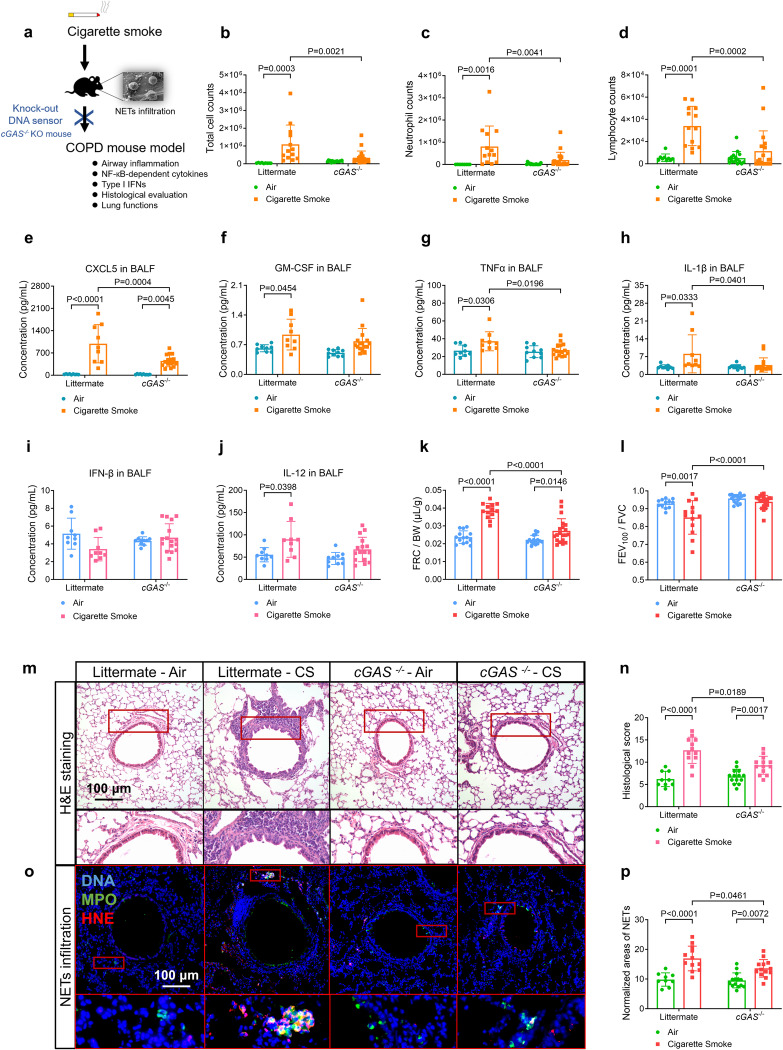Fig. 5.
Guanosine monophosphate-adenosine monophosphate synthase (cGAS) knock-out (cGAS−/−) mice treated with cigarette smoke (CS) exposure display decreased productions of nuclear factor kappa B (NF-κB)-dependent inflammatory cytokines, but not type-I interferons (IFNs), alleviated airway inflammation, infiltration of neutrophil extracellular traps (NETs) and improved lung functions, as compared with CS-treated littermate. Statistical analysis: n = 9–20 for each bar in (b–l, n, p), data were presented as the mean ± standard deviation; Differences are assessed by the b–l, n, p two-way ANOVA analysis of variance, followed by Tukey’s honest significant test; P < 0.05 represents a significant difference, the scattered samples and the p values are displayed in figures. a A brief outline for the experiments of the COPD mouse model (supplementary Method 18, 19). b–d CS-treated cGAS−/− mice display alleviated airway inflammation as reflected by: b total cell counts, c neutrophil counts and d lymphocyte counts in the bronchoalveolar lavage fluid (BALF, supplementary Method 22). e–h CS-treated cGAS−/− mice reveal overall reduced productions of NF-κB-dependent inflammatory cytokines in the BALF (supplementary Method 22, 26): e C-X-C motif chemokine ligand 5 (CXCL5), f granulocyte-macrophage colony-stimulating factor (GM-CSF), g tumour necrosis factor-alpha (TNFα) and h interleukin 1β (IL-1β). i, j No significant changes of type-I IFNs are shown in BALF of either CS-treated littermate or cGAS−/− mice: i IFN-β, j IL-12. k, l CS-treated cGAS−/− mice reveal alleviated emphysema and airflow limitation in lung function tests (supplementary Method 21) as evaluated by: k functional residual capacity/body weight (FRC/BW), l forced expiratory volume at 100 ms/forced vital capacity (FEV100/FVC). m Representative images of hematoxylin-eosin (H&E)-stained lung slices display the decreased severity of airway inflammation in the CS-treated cGAS−/− mice, compared with CS-treated littermate (scale bar: 100 μm, Supplementary Method 23), as summarised in n histological score. o Representative immunofluorescence images display the decreased infiltration of NETs (co-stained with DNA, myeloperoxidase, and histone H3) in the lung slices of CS-treated cGAS−/− mice, compared with CS-treated littermate (scale bar: 100 μm, supplementary Method 24), as summarised in (p) normalised area of NETs

